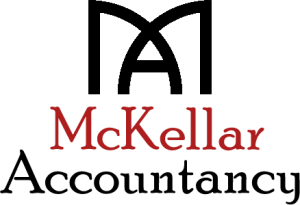In this week’s Enews, we look at the charges exporters to the US will face later this month. There is also news on Tax-Free Childcare and the latest data from a weakening jobs market to update you on.
SME exporters hit by new US customs charges
President Trump’s decision to charge import duties for low value goods entering the US is a major blow to the UK’s SME exporters, says the British Chambers of Commerce (BCC).
Under an Executive Order issued by the President, duties will be payable on goods valued under $800 from 29 August 2025. These will be in line with the rates applied to other goods from each country in accordance with its tariff rates.
For most UK goods export sectors this means the tariff rate they used to have plus the additional 10% reciprocal rate applied to most UK goods since April.
Alternatively, for the first six months only, a specific rate of $80 per item would apply to low value packages from the UK entering the US. After that period, the duties described above will be enforced on all packages of UK origin in scope.
William Bain, Head of Trade Policy, said:
‘This development has been coming for several months but is still a major blow to UK exporters to the US. Smaller firms and sole traders, who have invested strongly in e-commerce sales internationally, will be worst hit.
‘But the UK is in a comparatively advantageous position in terms of these additional duties compared with those faced by other countries.
‘The EU is also likely to scrap its de minimis threshold by 2028, and the UK government is launching a review into removing the threshold here too.’
Internet link: White House website BCC website
HMRC urges families to save money with Tax-Free Childcare
HMRC is encouraging working families to save money by signing up to Tax-Free Childcare and using one of the thousands of facilities accepting it as payment.
Tax-Free Childcare means working families can save up to £2,000 annually for each child up to the age of 11, and £4,000 for a disabled child up to the age of 16, when they’re paying for their childcare.
There are now 75,000 childcare settings accepting Tax-Free Childcare as payment including nurseries, registered childminders, holiday activity clubs. In addition, when school starts back in September it includes before and after school clubs.
Families yet to sign up for Tax-Free Childcare can do it now to pay for their summer activities or start paying into it ready for breakfast and after-school clubs when the new term starts.
Myrtle Lloyd, HMRC’s Chief Customer Officer said:
‘Whether your child is interested in football, climbing, crafting or dance, there’s a huge variety of childcare settings accepting Tax-Free Childcare. Children can learn something new and have fun with their friends while their parents save on their childcare bills. Visit GOV.UK to sign up today.’
Internet link: HMRC press release
UK labour market continues to weaken
The UK labour market continues to weaken, shedding 149,000 jobs over the past 12 months, according to the latest data from the Office for National Statistics (ONS).
The number of vacancies, which has now been falling steadily since early 2022, fell to 718,000 in June, which is a fall of 44,000 for the quarter.
Payrolled jobs are still falling fastest in the low paying hospitality sector, suggesting that the mini shock of the employer National Insurance contributions (NICs) and National Living Wage rise combination in April is still feeding through.
Pay growth continues to weaken too, but at a slower pace than the jobs market. Annual private sector wages grew by 4.8% in the year to June – down from 5.3% the year before.
Hannah Slaughter, Senior Economist at the Resolution Foundation, said:
‘The UK’s post-pandemic labour market was red hot. But that period is officially over – the labour market is loose and getting looser, having shed 165,000 payrolled jobs over the past eight months.
‘These jobs falls continue to be concentrated in low paying sectors like retail and hospitality. This reinforces the government’s decision to take a cautious approach to the minimum wage next year as the economic fallout from the recent employer NICs rise continues.’
Internet link: ONS website Resolution Foundation website




